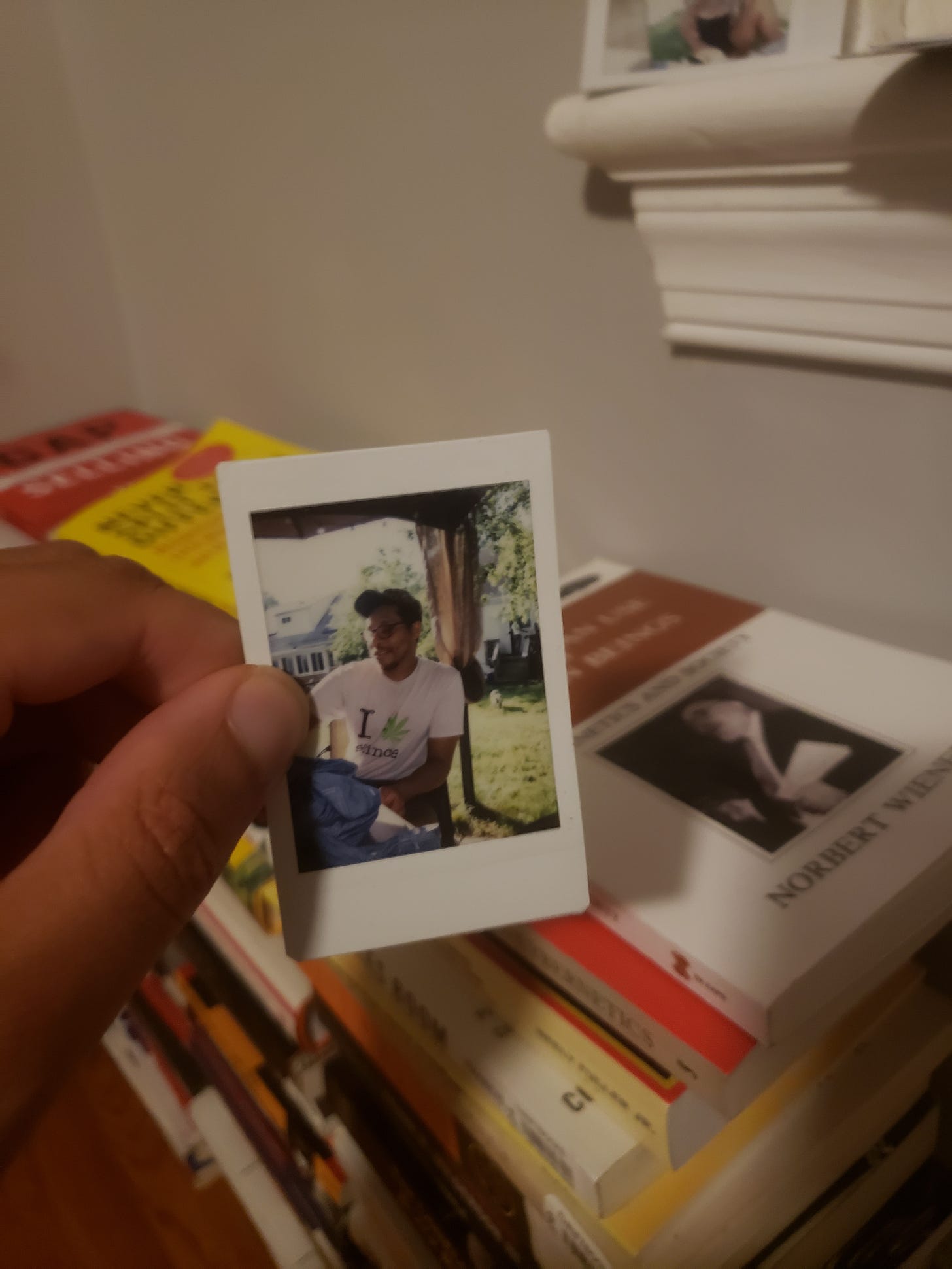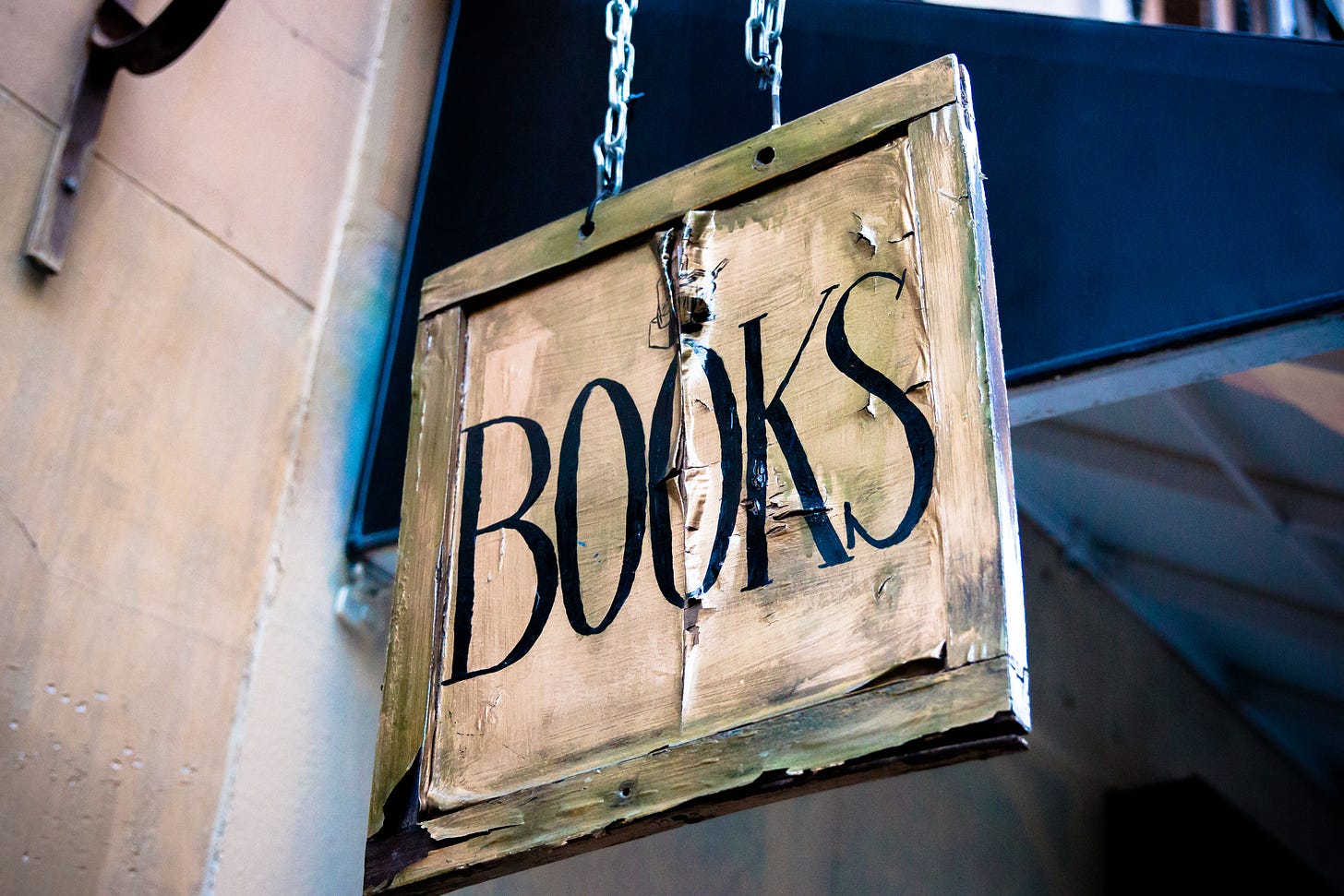The Reading Odyssey of Kamani Jefferson

For D.C. resident Kamani Jefferson, the past several months have been quite the whirlwind. An emerging figure in the political advocacy world, he moved from Boston to the nation’s capital to launch his own lobbying firm.
Enter 2020, a year consumed by COVID-19 and racial justice protests. On the heels of the pandemic, Kamani says that his lobbying work hasn’t taken off the way he expected to. So he returned to his first passion in life which is sales — a field that provides him with a more stable base during these uncertain times.
One thing, though, that Kamani says has remained constant even during these unprecedented is his zeal for great books. He prizes his intellectual journey, one that often takes him off into uncharted territory, one that celebrates the cross-fertilization of ideas for insight and inspiration.
He believes that books can become a special part of each of us, serving as fertilizer for our minds and the deepest parts of our nature.
A frequent commentator on the business networking site LinkedIn, Kamani recently shared thought about Malcolm X that was certainly eye-opening to anyone that loves the reading world:
“He said that he just wanted to be left alone, he just wanted to read books.”
Asked about how this spoke to him personally, Kamani had this to offer:
“Malcolm X really spoke to me because I found myself even before the pandemic spending less time with friends and family and more time with books.”
At the end of the day, he says that his fervent reading interest is really all about self-development.
“I’ve always found that the best way to learn about myself is through books.”
So I asked Kamani what he’s been reading lately? Here’s what he had to say:
“I just finished a book called Never Split The Difference about a negotiator and how he uses these negotiation experiences in his private world. I’ve also been reading a lot of different books on lobbying.”
Kamani says that he’s been an avid reader since high school and probably even before then.
“Once I got out of college, I started to pick up books that I wanted to actually read for myself, versus needing to read them for school. That’s really made a huge difference.”
He says that on a daily basis, he finds himself entrenched in a wide spectrum of learning pursuits, whether it be books, an article, or even podcasts from time to time.
But there is one thing he says he’s been noticing of late
“As I’m slowly turning 30 in a couple of months, I feel like I’m spending more and more time with literature. I’m excited to see where that goes.”
Kamani notes that the bookstore and library scenes in D.C. and Boston hold many similarities along with some differences.
“Both cities are super analytical and big into innovation. What originally drove me to Boston is my ex-partner is a Harvard alum. I also fell in love with MIT and Cambridge in general and met lots of really smart and innovative people in the Greater Cambridge and Boston area. That area obviously has some of the best schools in the world.”
Kamani says that Boston offered a broader array of books, which he says he enjoyed. In terms of D.C.?
“Books on political, policy and lobbying themes are more widely available here, which appeals to me.”
He says that being African-American made living in D.C. a natural fit.
“The Black community here is one of the stronger ones in the nation. I was really looking for a place like that. So between the fact that there are a lot of smart people here along with the policy environment make this an ideal locale for me at present.”

Asked about his favorite bookstore in D.C., Kamani responded with a chuckle:
“I wouldn’t say that I have a favorite bookstore because I’m your average millennial and I order books online. There are, however, a series of bookstores called “Politics In Prose” all over the city that I like. The setting, the books, and the layout are really cool at each of these stores. Then there is a place called “Busboy and Poets”. It’s like a bookstore, but it’s also a restaurant that has really delicious food.”
Before COVID, notes Kamani, the latter store had a series of wonderful poetry gatherings for the local community to take in.
“It was really enjoyable to kinda catch some poetry. And also be able to read a book and grab some food, maybe even a drink. I tend to like bookstores like this which are kinda unconventional.”
In the end, though, he reiterates that he really doesn’t have a favorite bookstore.
“Generally, if I stumble upon a place and it looks cool I’ll check it out. But to be honest, I feel like I’ve just been ordering a lot of books online for the past couple of years.”
Despite the advent of e-books and audio selections, Kamani admits to still loving physical books.
“I order them off of Amazon or even try to get them directly from the publisher. I’m also aiming to go more local with my purchasing habits. Especially if it’s a black or minority-owned bookstore which I do try to support.”
“Honestly, I like holding a physical book. I also enjoy having a little bit of a physical library at home. So yes, I still do order physical books.”
His favorite spot to hunker down and dive into a book”
“I definitely read in my room a lot. And when the weather is nice — with a mask of course — I’ll maybe go to the park. I like reading outside or reading in the backyard. But mostly I tend to read in my room in bed. I’ve got one of those pillows that you can kinda sit up and read on.”
Asked for some thoughts on books that have had a major impact on his life, Kamani offers this:
“Last year I read the book, Invisible Man by Ralph Ellison, that really opened me up. I found that it really encapsulated the black experience for me in terms of feeling invisible, including to each other as African-Americans. That was so interesting to me. No one had broken it down like that and it came out almost sixty years ago. And the fact that this book still has relevance today is pretty remarkable. So yes, that was definitely one of the best books I’ve read recently. It has had a profound effect on me.”
Continues Kamani:
“I also read a book called Sapiens by Yuval Noah Harari which was really interesting. It was kind of like a history of humanity. And the fact that he, the author was able to break it down so well in a matter of 400 pages was fascinating. And it wasn’t too lengthy.”
“I read a lot of history and a lot of politically oriented books and there was something about this book that kinda shows that the things that change for humanity also remain relatively the same.”
Kamani admits that the recent racial justice protests have had somewhat of an impact on his reading interests:
“There’s a book I’m reading right now called Ontological Terror: Blackness, Nihilism, and Emancipation where the author Calvin Warren explores the theme of Afro-Pessimism. The main premise is that African Americans are not allowed to just simply be, which I found really interesting. In other words, our idea of being is tied to the white idea of our being. This whole contrast of being to me is super interesting.”
Kamani says that his time in the policy world led him to believe that some of the deeper issues tied to racial unrest could be immediately resolved. Now, he says, he’s not so sure about that.
“This book has taught me that this idea of being and existence is really a journey, not something that can be solved in just a couple of minutes. It’s so complex what we’re really fighting for. I’ve definitely been scratching my head much more these days.”



